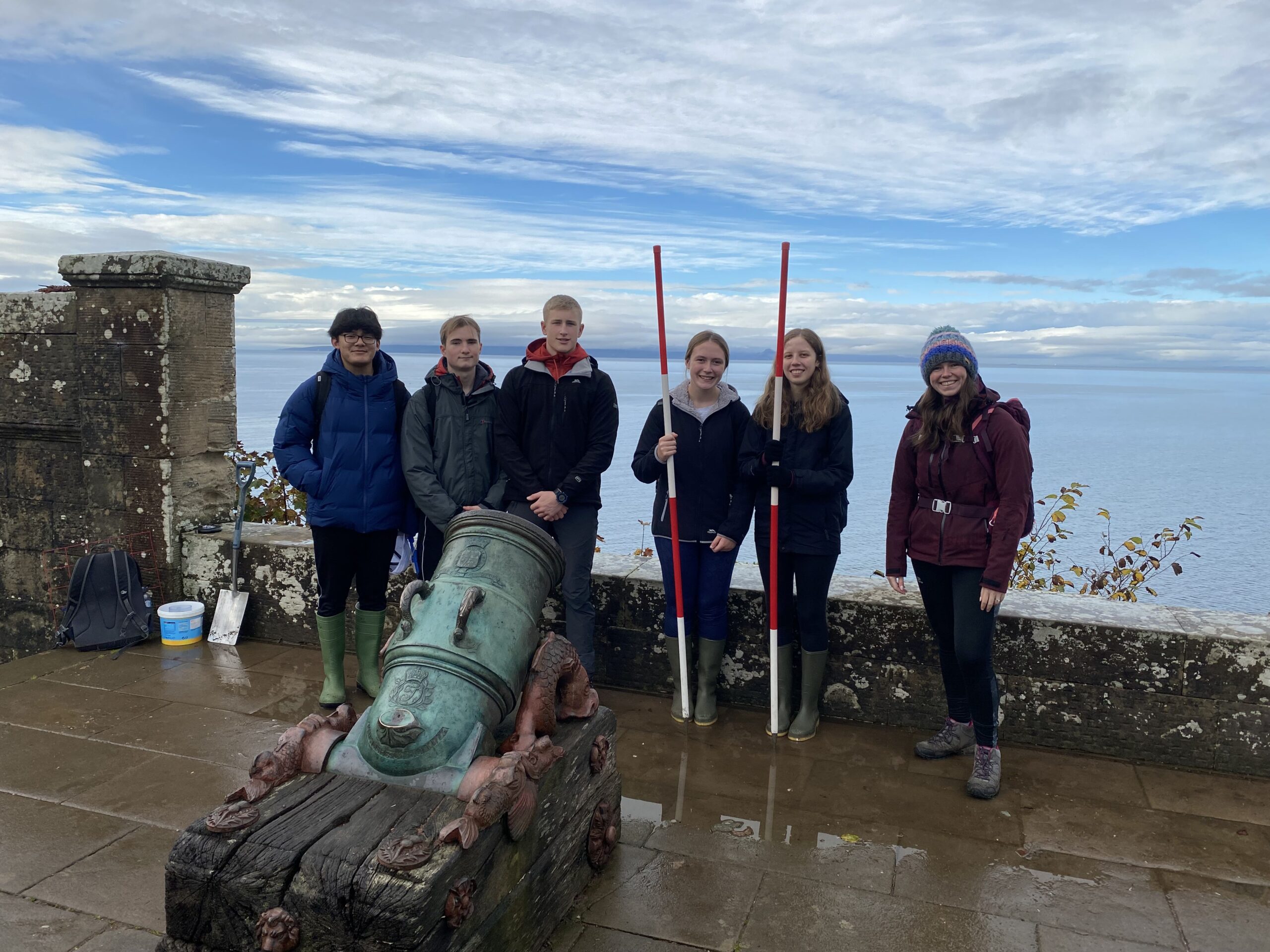
The Social Subjects department is a thriving and high attaining department comprising the following subjects: Geography, History, Modern Studies and Religious and Moral Education.
The Social Subjects department takes pride in creating and delivering lessons that engage pupils and motivate them to do their best. Through the teaching and learning of Social Subjects, pupils are encouraged to participate and voice their opinions, as well as develop lifelong skills such as teamwork, leadership, commitment and working independently. Across all of our social subjects, pupils have the opportunity to study a wide range of subject-based topics which help them to build awareness and understanding of the world in which they live.


Junior Phase Social Subjects
At Queen Victoria School, the S1 Social Subjects course covers Geography, History and Modern Studies. Pupils will experience all three subjects in five-week blocks throughout the year. In Geography, pupils will develop their awareness of place and atlas skills before moving on to investigating weather and climate. They will also explore what the tropical rainforest environment is like and the impact humans have had on the landscape. In History, pupils will explore the history of the Jacobite Rebellion of the 17th and 18th centuries including the Battles of Culloden and Prestonpans. They will then learn about the Ancient Aztec Empire of Mesoamerica including what life was like and what eventually led to their demise. In Modern Studies, pupils will explore the different types of media and the role that it plays in society. Pupils will also cover a unit on the importance of human rights and explore places around the world where they are not met.
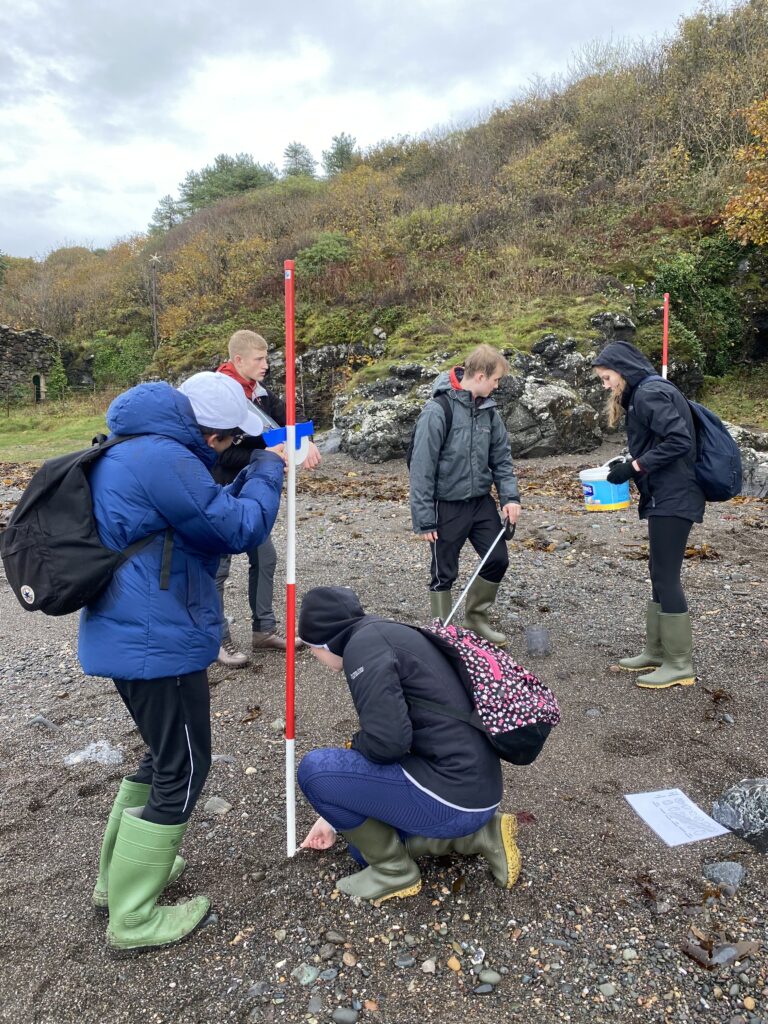
Geography
Geography is the study of places and the relationships between people and their environments. Assessment is both formative and summative and pupils are measured against 2nd, 3rd and 4th level Curriculum for Excellence Benchmarks. Pupils will develop a number of geographical skills including map reading and interpretation, fieldwork skills and other data gathering and interpretation techniques.
In S2, pupils spend the year studying ‘Our World’. They look at all aspects of life on Earth including how landscapes form, how different people live in different countries and some of the challenges we face including climate change and sustainability.
In S3, pupils investigate Globalisation including where the iPhone comes from and study many natural hazards such as tropical storms and volcanic eruptions.
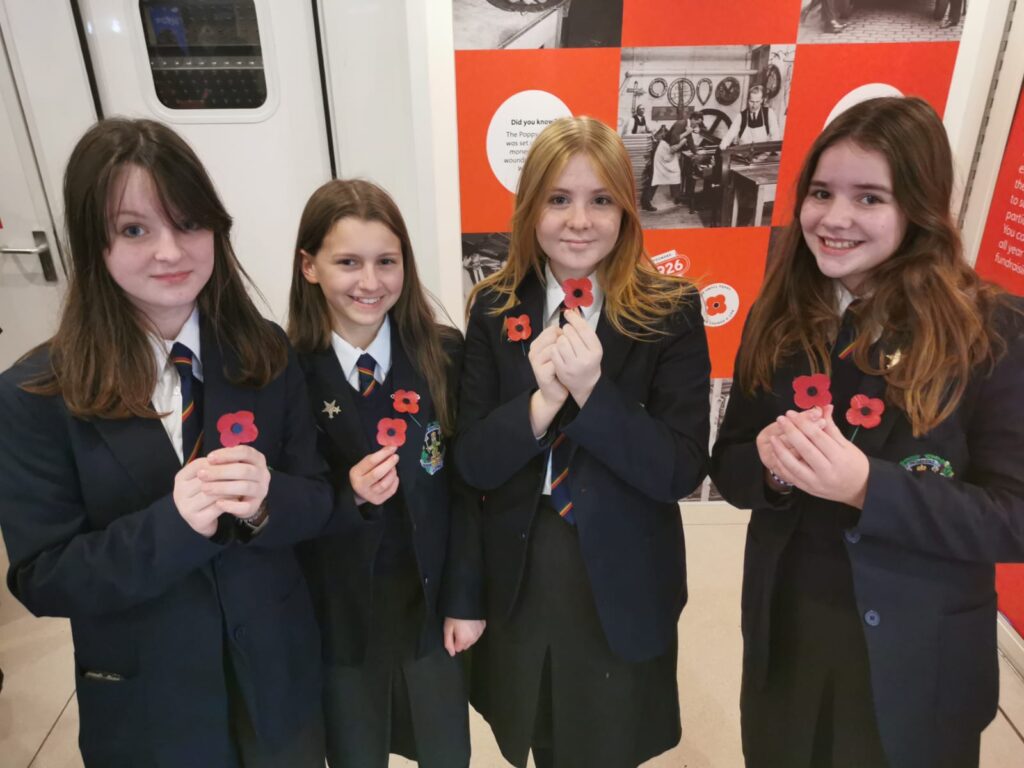
History
History is the study of people, past events and societies. At QVS, pupils will develop a number of historical skills including drawing comparisons, evaluating the usefulness of sources and making judgements. Assessment is both formative and summative and pupils are measured against 2nd, 3rd and 4th level Curriculum for Excellence Benchmarks across the areas of Scottish, British and European and World History.
World War I, the Holocaust and the Cold War are a few of the topics covered in S2 under the theme of conflict. Pupils will examine the causes and consequences of conflict and the lessons that can be learned from them.
S3 pupils can look forward to studying Technological change in Britain through developments in Industry and Transport, Germany 1918-1939 and the rise and dominance of the Nazi Party before looking at the Atlantic Slave Trade including Britain’s involvement and the abolitionist movement.
Modern Studies
Modern Studies is the study of people in society. The learning outcomes for Modern Studies in the junior phase are aimed at pupils developing a number of skills including detecting bias and exaggeration, drawing conclusions and selecting evidence to support and oppose a given viewpoint. Assessment is both formative and summative and pupils are measured against 2nd, 3rd and 4th level Curriculum for Excellence Benchmarks across the areas of political, social and international issues.
In S2, pupils study a unit on Taking Part where they learn about the political system of the UK which results in a Mock Election. They then move on to study China and draw comparisons between the Chinese and UK systems of government as well as examining some of China’s more controversial policies. The final unit looks at the causes and consequences of Terrorism.
Social Issues in the UK are covered in S3 and pupils learn about poverty and inequality before looking at development in Africa and the actions of the international community. Pupils then move on the look at Crime and the Law, looking at the causes and consequences of crime and how the government tackled this.
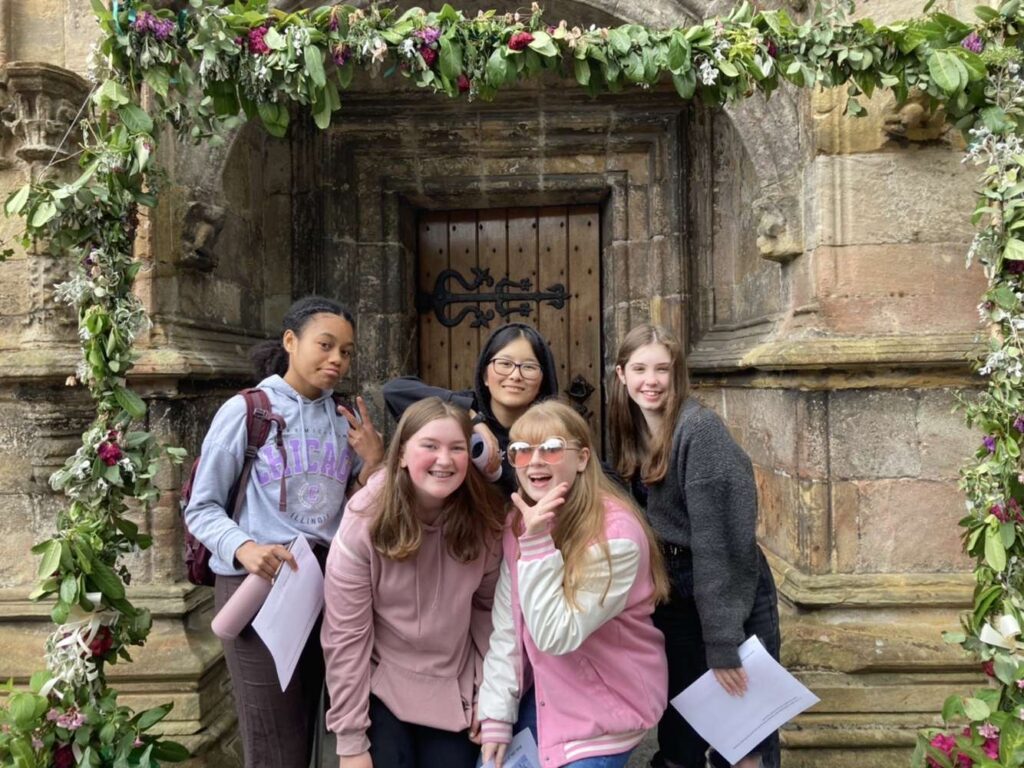
Core Religious and Moral Education
Core RME is the study of beliefs, values & issues, practices and traditions and is a compulsory subject for all pupils from P7 to S4. The course develops from Primary 7 and begins with a study of the emergence of Christianity in Scotland. As the course develops through S1 to S4, pupils learn about the world religions of Christianity, Sikhism, Islam and Buddhism, as well as learning about aspects of Hinduism and Judaism. Within the course, pupils also study philosophical and moral issues such as Medical Ethics, Human Rights and Environmental and Global Ethics.
More recently, some pupils have trialled the study of RBV unit materials in S4, allowing them to develop skills in research and the completion of Added Value Units.
Assessment is both formative and summative and pupils are measured against 2nd, 3rd and 4th level Curriculum for Excellence Benchmarks across the syllabus areas focussing on beliefs, practice and tradition and values and issues.
Senior Phase Social Subjects
Studying any of the Social Subjects in the Senior Phase opens up a range of career paths as you will have a wide range of transferable skills. Pupils frequently study more than one social subject and it is common for pupils who have had success in one subject to ‘crash’ a higher in another social subject in S6.
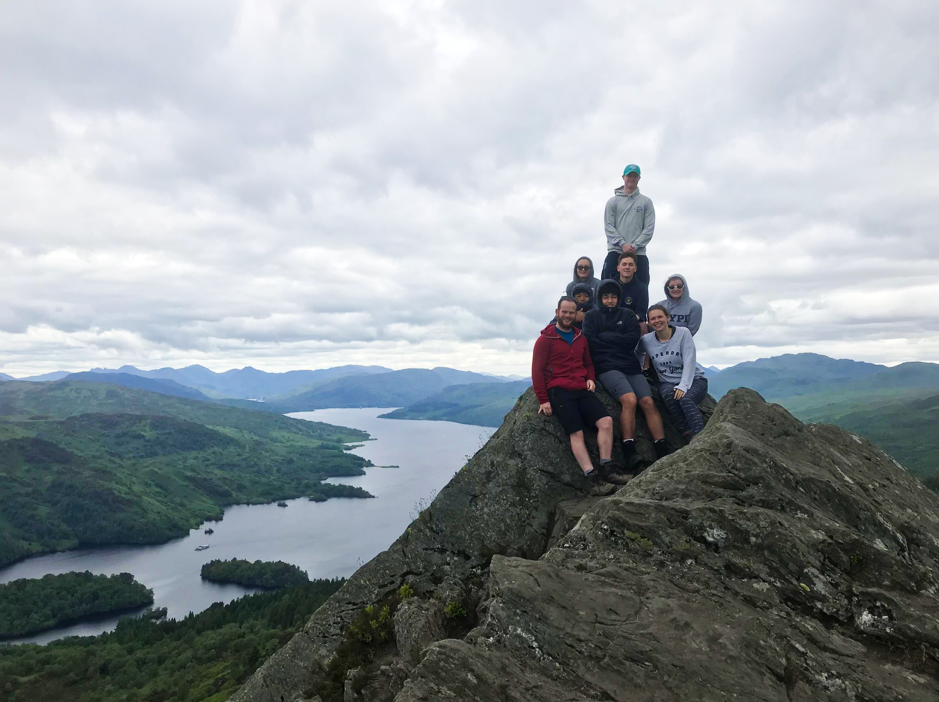
Geography
Pupils who choose to study Geography in S4 will complete the National 4/5 course which covers three units of Physical Environments, Human Environments and Global Issues. Pupils will also get the opportunity to take part in a field trip to Loch Lomond and the Trossachs National Park to gather data for their coursework.
Pupils who choose to study Higher Geography will build on their knowledge and understanding of National 5 Geography to develop a greater appreciation and understanding of the world. They will also complete a field trip to a local river to gather data for their coursework assignment.
Pupils who have enjoyed National 5 and Higher Geography may consider completing Advanced Higher Geography in S6. This course focuses on applying the knowledge of Higher Geography in a series of independent research projects. Pupils will develop a wide range of skills in data gathering and processing techniques including the use of advanced statistics. The skills developed in this course are excellent preparation for those planning to study Geography at university.
Geography at any level in the Senior Phase is recommended for anyone who wishes to pursue a career in Teaching, Environmental Consultancy, Sustainability, Town Planning, Cartography, Development Work, International Aid and Nature Conservation.
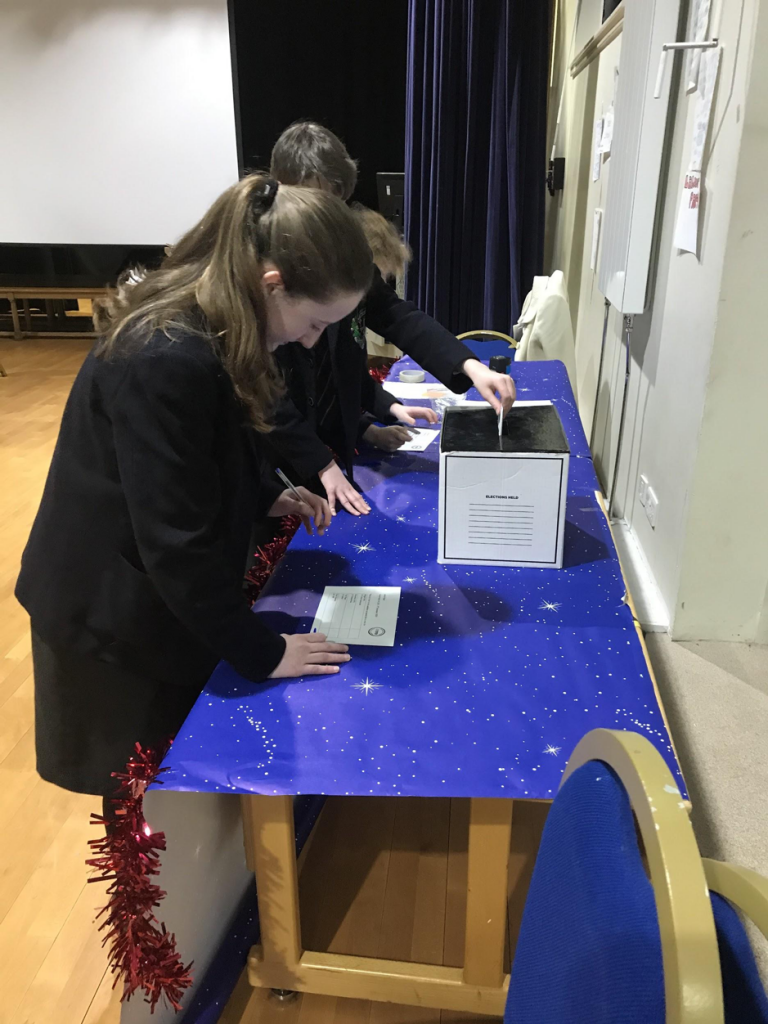
History
Pupils who choose to study History in S4 will complete the National 4/5 course which covers three units of Scottish, British and European and World History. The topics within these units are: Scotland and the Era of the Great War 1910-1928, The Atlantic Slave Trade 1770-1807 and Free at Last? Civil Rights in the USA 1918-1968. Pupils also get the opportunity to research and write an essay of their choice for the assignment element of the course.
Pupils who choose to study Higher History will build on their knowledge and understanding of National 5 History and develop analytical essay writing and complex source evaluation skills. Topics covered in the Higher course include: Scotland Migration & Empire 1830-1930, Britain 1850-1951 and Germany 1815-1939. Pupils also get the opportunity to research and write an essay of their choice for the assignment element of the course.
Pupils who have enjoyed National 5 and Higher History may consider completing Advanced Higher History in S6. The course content would be agreed upon by pupils and staff depending on interest and areas of expertise. It is a highly demanding course with a lot of independent research and one which requires a lot of commitment and motivation. The skills developed in this course are excellent preparation for those planning to study History at university.
History at any level in the Senior Phase is recommended for anyone who wishes to pursue a career in Historical studies, Law, Journalism, Teaching, Military, Civil Service and Archeology.
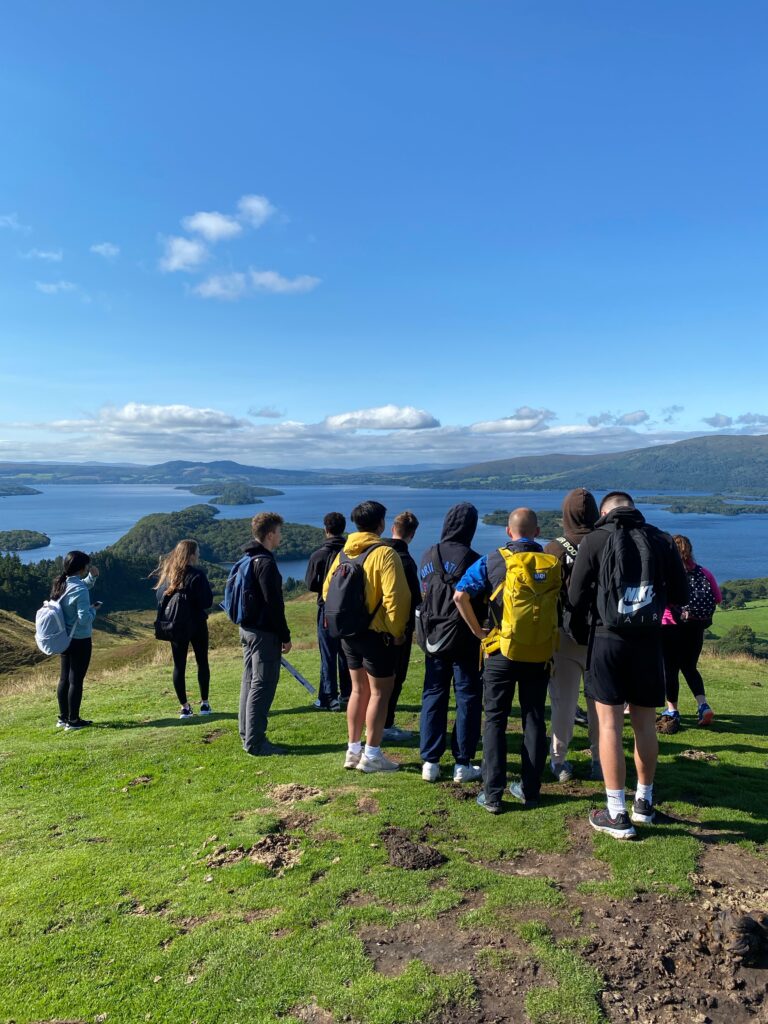
Modern Studies
Pupils who choose to study Modern Studies in S4 will complete the National 4/5 course which covers three units of Political, Social and International Issues. The topics within these units are: Democracy in Scotland, Crime and the Law and World Power: Pupils also get the opportunity to research and produce a report on a topical issue of their choice for the assignment element of the course.
Pupils who choose to study Higher Modern Studies will build on their knowledge and understanding of National 5 Modern Studies and develop analytical essay writing and complex source interpretation skills. Topics covered in the Higher course include: Democracy in Scotland and the UK, Social Inequality and World Issue: Syria. Pupils also get the opportunity to research and produce a report on a topical issue of their choice for the assignment element of the course.
Pupils who have enjoyed National 5 and Higher Modern Studies may consider completing Advanced Higher Modern Studies in S6. The course content would be agreed by pupils and staff depending on interest and areas of expertise. It is a highly demanding course with a lot of independent research and one which requires a lot of commitment and motivation. The skills developed in this course are excellent preparation for those planning to study politics at university.
History at any level in the Senior Phase is recommended for anyone who wishes to pursue a career in Politics, International Relations, Law, Journalism, Teaching, Military, Civil Service and the Police.
Religious, Moral and Philosophical Studies (RMPS)
Pupils who choose to study RMPS in S4 will complete the National 4/5 course. Pupils study three units for this certificate course, including Christianity as a World Religion, Morality and Conflict and Philosophical Questions: The Existence of God. Pupils also get the opportunity to research and write an essay of their choice for the assignment element of the course.
Pupils who choose to study RMPS in S5 will build on their knowledge and understanding of National 5 RMPS and develop analytical essay writing skills as well as learning about subject areas at greater depth. Pupils study three units, including Buddhism as a World Religion, Morality and Conflict and Philosophical Questions: The Existence of God.
Pupils who have enjoyed National 5 and Higher RMPS may consider completing Advanced Higher RMPS in S6. The course content would be agreed upon by pupils and staff depending on interest and areas of expertise. It is a highly demanding course with a great deal of independent research and one which requires significant commitment and motivation. The skills developed in this course are excellent preparation for those planning to study theology at university.
Within Religious, Moral and Philosophical Education we hope to open minds to new possibilities and new perspectives which may leave us thinking long and hard about deep philosophical questions.
RMPS at any level in the Senior Phase is recommended for those who wish to pursue careers for example in Education, International Relations, Politics, the Civil Service, Law, Archaeology, Social Sciences and Journalism.
“Ideas are the source of all things.”
PLATO